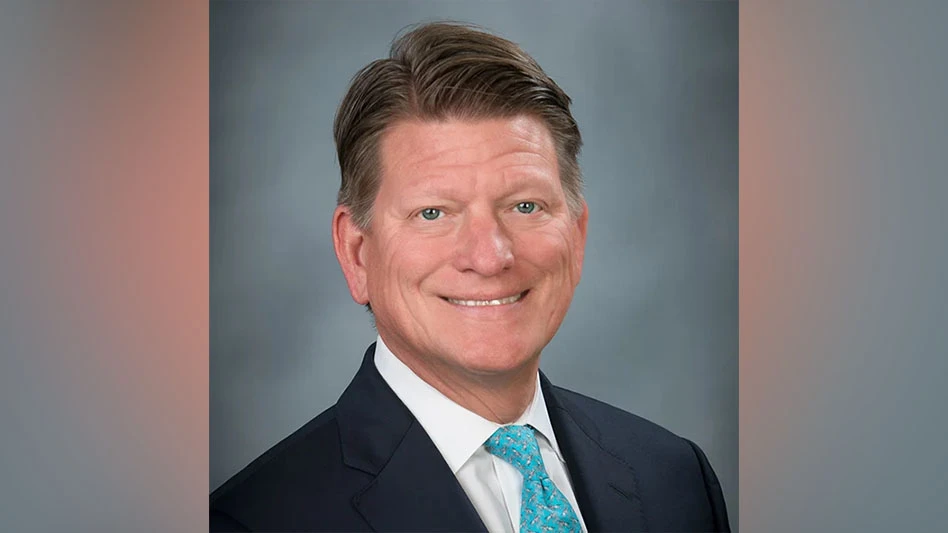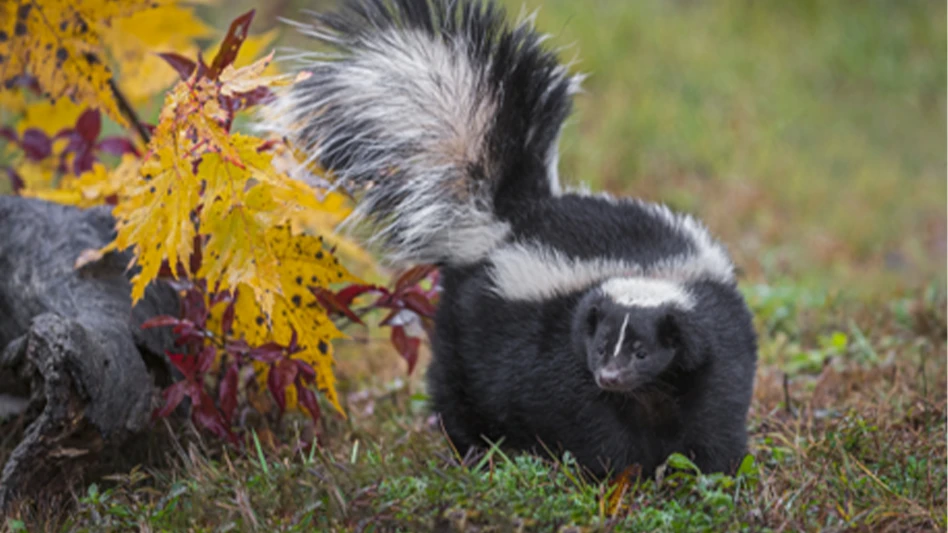Editor’s note: After the February issue of PCT was posted online, we received several comments about "First Person: Building a Robotic Spray Can" (RearView, page 106). The article, by Jim Rindfleisch of the Department of Environmental and Developmental Services, County of York, Va., was a first-hand account of Rindfleisch’s efforts to create an autonomous sprayer. He developed a sprayer using an iRobot "Create" — a sophisticated relative of the Roomba floor vacuum.
Some comments on PCT’s site questioned why we ran an article about a product that was clearly not IPM focused. (One poster commented the device was a "dumber" baseboard jockey.)
Certainly Rindfleisch was not suggesting his invention was a replacement for service professionals, nor was that PCT’s intent. Although we understand how readers might have been offended, the reason we ran the article was because we thought it was fun and something relatable to other industry professionals — we’ve heard of other PCOs and technicians who enjoy "tinkering" with and/or retrofitting application equipment — or even concocting their own baits.
Rindfleisch posted the following online regarding the conversation: "Greetings all. No, this robot was not built to replace anything but my aching back. I built it for fun, but along the way have discovered that robots built for spraying pesticide are an inevitable addition to the industry. Building and programming an indoor-spraying robot presents a number of difficulties. This silly little machine has provided the solution to several complex control algorithms that will one day program other spraying robots. This prototype is the first. It doesn't look like much, but before too long robots will become important tools in the pest manager's inventory."
After this exchange, we received the following:
*****
One Step Forward, Two Steps Back
We as an industry are at the footsteps of an exciting time. Progressive service companies are truly embracing and profiting from IPM. Gutter guard installation, crawlspace remediation, landscape alterations, exclusion/sanitation services and heat treatments are just a few of the services our industry provides. We have NPMA and the IPM Institute providing helpful standards that hold us more accountable and create even more opportunity for us to provide services everyone can feel good about. Could you have ever imagined in your wildest dreams the NPMA receiving an award from the EPA? Moreover, manufacturers and other innovators consistently create new products that are effective and significantly less invasive. Part of promoting our industry is to be aware of our public image and find ways to improve it.
This brings me to "First Person: Building a Robotic Spray Can (February PCT, page 106)." If any group or any financial magazine needed more fodder to support their anti-pest control message, they can easily cite this article and the archaic online video against us. The article not only insinuates replacement of the pest management professional, but it also promotes unnecessary and indiscriminate application of pesticides. The author’s response in an online thread states, "robots built for spraying pesticide are an inevitable addition to the industry." The backbone of our industry hinges on the service and professionalism of a human being, not a robot baseboard jockey.
As the face of our industry, PCT has an obligation to represent us in a positive light. And for the most part, PCT does just that. Be aware that anything PCT prints can be used against us. Pesticides are an important tool. It is how and when we use them that sets us apart from anyone else. Unfortunately, this article sets us back by many years, and unintentionally sabotages the great strides this industry has made.
Tom Dobrinska, B.C.E.
Training Director
Anderson Pest Solutions
Elmhurst, Ill.
*****
Reality TV Stars
Don’t Represent Me
For the 20+ years I have been involved in the pest management industry, we have worked to improve our image. We reinvented ourselves, first as "professional pest control operators" and now as "pest management professionals."
When I and many others began studying the art and science of professional pest management back in the 1980s, we were facing an uphill battle. We’d entered a world where the public mindset had been wildly misled by publications such as "Silent Spring." The public, rightly, often saw us as hacks and hucksters, not far removed from the snake-oil peddlers of the last century.
If a television show featured a PCO, as we were called then, he was dressed sloppily, needed a shave, shuffled when he walked and had a cigar clamped in his teeth. And he carried some freakish application equipment, generally strapped on his back. These were entertaining images but did nothing to improve the status of the PCO.
But things had to change. My employer at the time was Griggs and Browne. That firm, New England Pest Control and other large companies (like Orkin and Terminix) led the way, dressing their technicians in shirts and ties. They insisted on clean, tidy vehicles. Technicians were clean shaven, not only for appearance sake, but because a respirator doesn’t seal properly over facial hair. Thanks to these efforts, duplicated across the country, with input from groups like NPMA, we have made enormous progress in overcoming those awful stereotypes. People now see us as the valuable ally we are in protecting their homes, health and food sources. I haven’t had anyone ask for an "unmarked vehicle" in 10 years. That’s progress!
So, as a guy who has eliminated cockroaches from thousands of apartments, improving the lives of the occupants and relieving their children from the burdens of aggravated childhood asthma; someone who has preserved millions of dollars of real estate from the ravages of termites and carpenter ants; someone who has safely removed hundreds of nests of stinging insects; and lawfully trapped and euthanized numerous wild animals, thereby helping to preserve the health of both the human and animal populations; and being only ONE of many thousands of such professionals nationwide, I am appalled the Billy Brethertons of the world are the ones selected to represent my industry to the public.
In PCT’s October issue you nearly gush over Billy Bretherton and Vexcon Exterminators, both the antithesis of that very progress! Have you no professional pride? Ladies and gentlemen, contrary to what you may have heard, all press is not good press.
One way in which Bretherton poisons the image of our industry is his appearance. How many times have we heard and repeated the mantra "To be seen as a professional you must look like a professional"? Bretherton looks like a professional rock star, not a pest management professional.
TV shows like this, which sensationalize a profession rather than explain it, misinform the public. Witness the "Dog the Bounty Hunter" series. Does anyone really believe that professional bounty hunters ride around dressed for Halloween, accompanied by women in high heels with their enormous breasts on display and men in bulletproof vests but no shirts?
In PCT’s article there is a photo of Bretherton holding either a young (live) fox or coyote by the neck. There is no PPE in sight. The caption mentions his intent to relocate and release the animal. Laying aside the glaringly obvious disregard for the required protective equipment and the potential detrimental effect to the animal from direct contact with humans, I am curious regarding Louisiana law. Does it permit the relocation of canids and/or known rabies vector species?
Of course this is nothing new. As Jerry Springer proved long ago and the aptly named "Jackass" series substantiates, television popularity does not require intellect or talent. Unfortunately, in this case "sensationalism" sells.
Tom Brennan
Owner
Coventry Pest Control
Coventry, R.I.

Explore the May 2010 Issue
Check out more from this issue and find your next story to read.
Latest from Pest Control Technology
- Pest Control Equipment: If it’s Critical, Back it Up!
- In Memoriam: Marybeth Wonson
- In Memoriam: Layton Word
- Mitchell Boston's Involvement as Local Councilman Sparks Growth in Pest Control Business
- Grizz Pest Management Owners Support Wildlife Conservation with Brookfield Zoo in Chicago
- Grizz Pest Management Partners with Brookfield Zoo to Build Tropical Forests Exhibit
- Truly Nolen Promotes Bohne to Vice President of Business Development
- Watch: Abell Pest Control Holds Snap Trap Challenge





